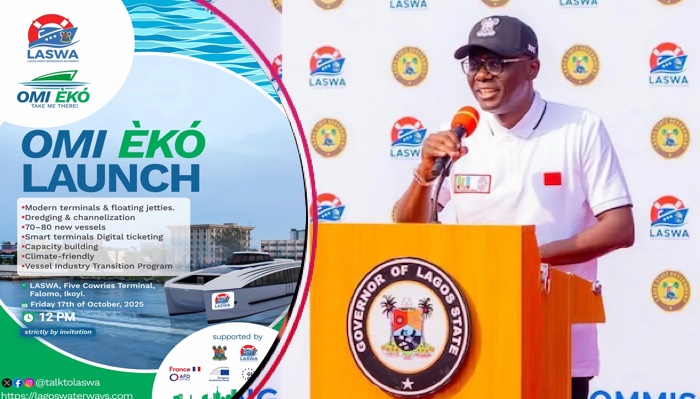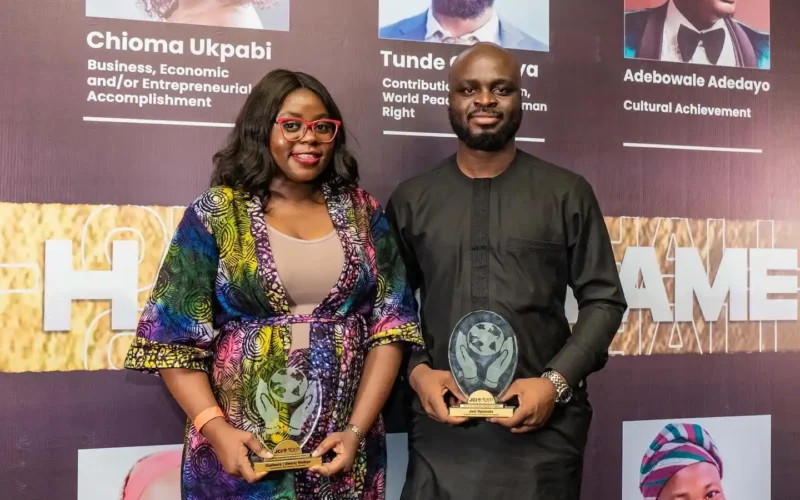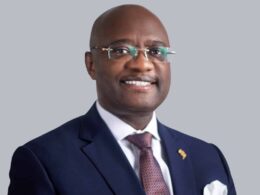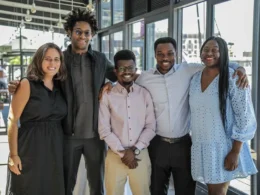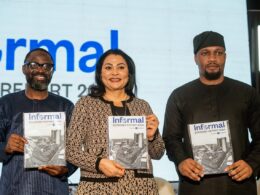Lagos State Government, in partnership with the European Union, French Development Agency (Agence Française de Développement), and the European Investment Bank (EIB), has officially launched the Òmì Èkó Project—an ambitious electric ferry initiative set to revolutionize water transportation in Nigeria’s commercial capital.
Project Overview: A Green Transportation Revolution
The Òmì Èkó Project (meaning “Lagos Water” in Yoruba) represents one of Africa’s most comprehensive sustainable transport initiatives, featuring:
- 75 electric ferries
- 15 routes covering 140 kilometers
- 25 terminals across Lagos waterways
- Zero-emission water transport
- Reduced travel time and traffic congestion
The project aims to provide cleaner air, cleaner water, and significantly reduced road congestion while connecting communities across Lagos’s extensive waterway network.
Strategic Partnerships Driving Innovation
The initiative is backed by major international development partners:
European Union (#EU)
The EU’s support underscores its commitment to sustainable development and climate action in Africa, aligning with global green transition goals.
Agence Française de Développement (AFD)
France’s development agency brings expertise in sustainable urban mobility projects across emerging markets.
European Investment Bank (EIB)
As the EU’s lending institution, the EIB provides crucial financing for large-scale infrastructure projects that promote environmental sustainability.
Lagos State Waterways Authority (LASWA)
LASWA will oversee operations and ensure the project’s integration with existing transport infrastructure.
Impact on Lagos: More Than Just Transport
Lagos, home to over 20 million people, faces severe traffic congestion that costs the economy billions annually. The Òmì Èkó Project addresses multiple challenges:
Environmental Benefits
- Zero-emission electric vessels
- Reduced air pollution from road traffic
- Protection of Lagos’s marine ecosystem
- Climate change mitigation
Economic Impact
- Reduced travel time for commuters
- Lower transportation costs
- Job creation in green technology
- Enhanced business connectivity
Social Development
- Improved accessibility for underserved communities
- Enhanced safety compared to traditional ferries
- Efficient, reliable public transport option
- Equal mobility opportunities for all residents
Technology and Sustainability
The electric ferries represent cutting-edge maritime technology adapted for African conditions. These vessels will operate on renewable energy, significantly reducing Lagos’s carbon footprint while providing reliable, efficient transportation.
“Òmì Èkó is set to connect communities, cut travel time, and bring Lagos closer to a sustainable future, where mobility means efficiency, safety, and opportunity for all,” the Delegation of the European Union announced.
Regional Significance
The project positions Lagos as a leader in sustainable urban transport in Africa and could serve as a model for other coastal cities facing similar challenges. With Africa’s rapid urbanization, innovative solutions like Òmì Èkó demonstrate how technology and international cooperation can address infrastructure gaps while advancing climate goals.
Implementation Timeline
While specific implementation phases haven’t been fully detailed, the launch announcement indicates that infrastructure development and ferry deployment will begin in the coming months, with phased rollout across the 15 designated routes.
Looking Ahead
The Òmì Èkó Project represents a bold vision for Lagos’s future—one where water transportation becomes a primary, sustainable mobility option. As the project unfolds, it will be closely watched by other African megacities seeking to balance rapid growth with environmental responsibility.
This initiative also highlights the growing trend of green infrastructure investment in Africa, supported by international development partners committed to sustainable development goals.






